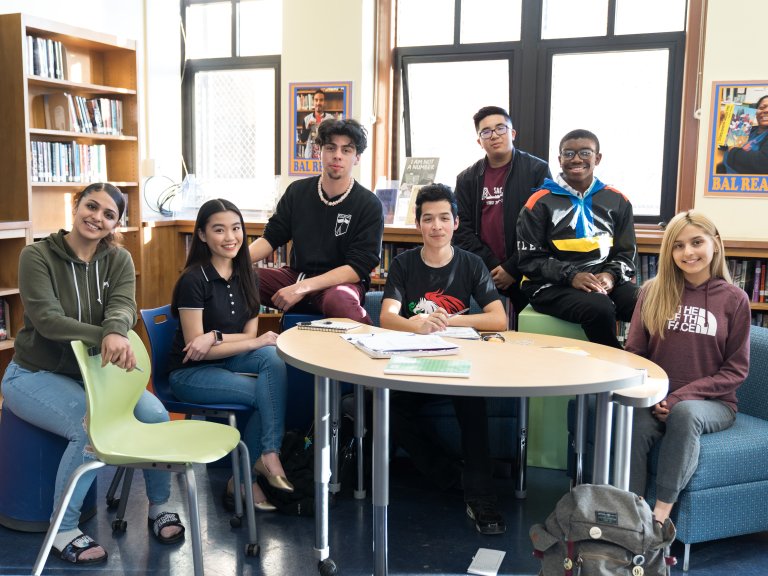How You Can Help Save Temecula Schools for Future Generations
Wiki Article
Exactly How Schools Play a Critical Function in Shaping Future Leaders and Innovators
By integrating project-based knowing and interdisciplinary studies, academic institutions test trainees to examine and manufacture intricate info. Teachers serve as advisors, guiding pupils and supporting their potential, while extracurricular tasks even more create leadership abilities and resilience.Fostering Critical Thinking
In today's swiftly progressing globe, fostering crucial thinking within schools has actually come to be critical. As society grapples with progressively complicated international difficulties, the ability to assess, examine, and manufacture info is crucial. Schools play a crucial function in creating these skills, preparing trainees to navigate and address diverse issues with notified, reasoned decisions.To grow critical thinking, teachers use numerous instructional strategies that encourage active understanding and intellectual interaction. Class conversations, problem-based knowing, and Socratic examining contribute in promoting logical and reflective idea procedures. By testing students to question presumptions and think about multiple perspectives, these methods make certain a deeper understanding of topic beyond rote memorization.
Additionally, incorporating important believing across the educational program strengthens its value and applicability in varied contexts. Subjects such as maths, science, background, and literature each offer one-of-a-kind chances to create students' vital professors. For example, analyzing historical events needs examining resources and comprehending context, while scientific query demands strenuous theory screening and evidence-based thinking.
Inevitably, instilling vital assuming abilities in pupils outfits them with the cognitive tools needed for lifelong knowing and flexibility. It is via this foundational proficiency that future leaders will be able to introduce, address problems, and add meaningfully to culture.
Motivating Creative Thinking
Welcoming creativity within educational frameworks galvanizes pupils to assume past conventional borders and discover cutting-edge solutions. By incorporating imaginative endeavors and innovative reasoning exercises into the educational program, institutions grow a setting where creativity and creative idea are valued. This approach not just improves the educational experience however additionally equips students with the ability to deal with real-world obstacles in unique means.School can promote imagination via varied methods such as project-based learning, interdisciplinary research studies, and the incorporation of arts and technology. Project-based learning, for example, urges students to apply their knowledge in functional, commonly collective, jobs that demand inventive analytical skills. Interdisciplinary research studies allow trainees to draw links in between various subjects, thereby widening their viewpoints and boosting their imaginative capacities.
Additionally, giving trainees with chances to engage with arising innovations, such as coding and digital style, additionally nurtures their creative possibility. These activities prompt trainees to experiment, stop working, and repeat, which are important components of the creative process (Save Temecula Schools). By maintaining an encouraging environment where trial and error is motivated, colleges can make sure that trainees create the self-confidence to pursue cutting-edge concepts
Fundamentally, nurturing creativity in educational settings is essential for shaping future leaders and trendsetters capable of dealing with complicated global concerns with ingenuity.
Encouraging Collaboration

Carrying out group-based learning modules and participating tasks enables trainees to experience the characteristics of synergy firsthand. This not just prepares them for the collaborative nature of modern-day work environments however likewise supports leadership qualities as they commonly have to take on roles such as project supervisors or team coordinators. Additionally, collaboration in the classroom can damage down social barriers and advertise inclusivity, guaranteeing that each trainee really feels valued and listened to.
Moreover, incorporating technology can additionally support collaborative initiatives. Tools like shared digital work spaces and interactive systems make it possible for trainees to collaborate efficiently, even outside the class. As pupils create these collaborative skills, they are better geared up to deal with intricate obstacles and innovate, preparing for their future roles as trendsetters and leaders.
Role of Educators as Advisors

Mentorship entails individualized interest, where instructors determine and support individual staminas and address weaknesses. Save Temecula Schools. With individually interactions, teachers can tailor their suggestions and assistance to satisfy each trainee's distinct needs, promoting a feeling of confidence and resilience. This individualized technique cultivates a development state of mind, motivating trainees to view failures as chances for learning and growth
you can look here Moreover, educators work as good example, showing the values of integrity, perseverance, and compassion. Their perspectives and activities offer a plan for students to emulate, instilling a feeling of honest duty and social understanding. By developing a comprehensive and encouraging class setting, teachers make it possible for pupils to create social skills that are vital for efficient leadership.
Basically, the mentorship offered by instructors lays a fundamental framework for the growth of future leaders, furnishing them with the expertise, skills, and worths required to master an ever-evolving world.
Effect of After-school Activities
When incorporated successfully into the click this site educational framework, extracurricular activities substantially boost trainee advancement and management capacity. These tasks give trainees with opportunities to discover rate of interests past the conventional educational program, promoting a versatile capability. Clubs, sporting activities groups, and arts programs cultivate necessary qualities such as teamwork, time management, and durability. Engagement in these activities typically requires trainees to take on responsibilities, therefore nurturing their leadership capabilities.Moreover, extracurricular participation encourages creative thinking and innovation. Trainees participated in songs, debate, or drama clubs learn to believe critically and technique problems from varied viewpoints. These experiences infuse self-confidence, making it possible for students to articulate their ideas and take campaign in different setups. By teaming up with peers from different backgrounds, students likewise establish compassion and interaction abilities, vital attributes for future leaders.
Study shows that pupils involved in such programs often tend to have higher grades and much better participation records. Hence, schools that focus on a well balanced approach to education, incorporating durable extracurricular programs, are a lot more likely to generate leaders and trendsetters furnished to satisfy the obstacles of the future.

Final Thought
In final thought, schools considerably shape future leaders and innovators by nurturing vital thinking, creativity, and cooperation amongst students. By fostering an encouraging setting that values specific toughness and teamwork, institutions furnish pupils with the necessary abilities to navigate future challenges and drive development.As pupils develop these joint skills, they are better outfitted to deal with intricate obstacles and introduce, laying the foundation for their future duties click to investigate as leaders and innovators.
By promoting important thinking and problem-solving skills, educators assist pupils navigate complicated difficulties, preparing them for management functions in various areas.
By working together with peers from different histories, trainees also create compassion and communication abilities, necessary qualities for future leaders.
In final thought, schools significantly shape future leaders and pioneers by nurturing essential reasoning, imagination, and cooperation among pupils. By fostering a helpful environment that values individual toughness and synergy, colleges gear up pupils with the necessary skills to browse future obstacles and drive innovation.
Report this wiki page